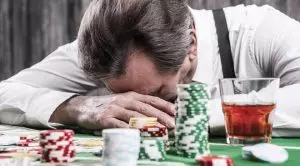 British psychiatrists have warned of a surprising increase in the problem gambling rates among players over the age of 65 that has started after the biggest increase registered in the online gambling industry since before the coronavirus pandemic outbreak.
British psychiatrists have warned of a surprising increase in the problem gambling rates among players over the age of 65 that has started after the biggest increase registered in the online gambling industry since before the coronavirus pandemic outbreak.
According to the Royal College of Psychiatrists (RCP) analysis of the UK Gambling Commission (UKGC) data, a further 620,000 people over the age of 65 are gambling online at least once a month in comparison to the ones in 2019. This is a larger increase than any other age group gambling online in the country.
Experts believe that social distancing and stay-at-home measures, combined with the increasing reliance on TV and social media such as Facebook for contact with the outside world is probably one of the main reasons why over-65s have been exposed to more gambling advertisements, as well as to more online gambling that is considered more addictive and less regulated.
According to psychiatrists, anxiety caused by isolation during the Covid-19 lockdowns, along with financial difficulties and disruption of people’s normal everyday routines, have also been suggested as some of the possible reasons why a larger number of elderly people are getting more orientated towards online gambling. The latest data have shown that increased online gambling rates outweigh the reduction of customers’ use of brick-and-mortar betting shops that have been caused by the social distancing restrictions associated with the coronavirus pandemic.
Long Periods of Covid-19-Related Social Isolation Blamed for the Problem Gambling Increase
 The spokesperson for behavioural addictions at the Royal College of Psychiatrists, Professor Henrietta Bowden-Jones, shared that the latest data only came as proof of how much people’s lives had been shaken by the coronavirus pandemic. She further noted that not everyone who gambles would develop an addictive behaviour towards gambling activities, but some of them would. Professor Bowden-Jones described gambling addiction as an illness that could lead to extreme levels of anxiety, depression and even suicidal thoughts if professionally treated.
The spokesperson for behavioural addictions at the Royal College of Psychiatrists, Professor Henrietta Bowden-Jones, shared that the latest data only came as proof of how much people’s lives had been shaken by the coronavirus pandemic. She further noted that not everyone who gambles would develop an addictive behaviour towards gambling activities, but some of them would. Professor Bowden-Jones described gambling addiction as an illness that could lead to extreme levels of anxiety, depression and even suicidal thoughts if professionally treated.
The long-time anti-gambling campaigner Matt Zarb-Cousin, who currently heads the Clean Up Gambling group, explained that online gambling bears a higher risk of developing addictive behaviour because gambling services on the Internet can be accessed easily, while the competent authorities have still not tightened the restrictions on stakes and speed that have already adopted in some forms of retail gambling, such as fixed-odds betting terminals (FOBTs) offered by local bookmakers.
Considering the fact that elderly people have more free time and are at home for most of the day, it is not uncommon for them to become more vulnerable to the detrimental impacts of gambling. During the long period of social isolation, they spent more time on social media to keep in touch with people, as well as watching TV, so they were being constantly targeted by gambling operators through their marketing campaigns. Plus, the temptation was literally always there, and the accessibility of gambling services online is extremely easy.
According to figures provided by the UKGC, only 8.7% of people over the age of 65 gambled online in the year that ended in September 2019. This rate, however, increased to 13.5% in the year to September 2021. Both figures exclude gambling on the products of the UK National Lottery.
As mentioned above, this has been the sharpest increase registered in the gambling participation rates of any age group in the country. The second position is taken by the group of people between the age of 45 and 54, as the number of online gamblers among them rose to about 340,000 people throughout the Covid-19 pandemic so far.
- Author


